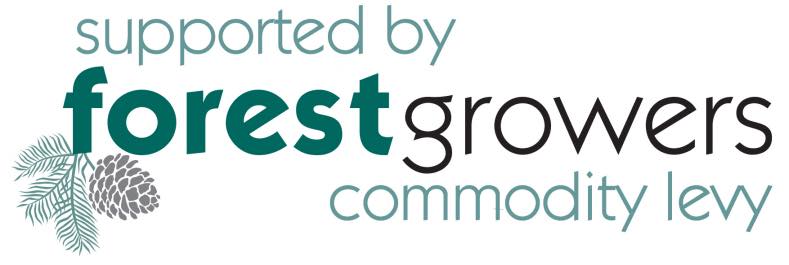
This is free.
A visit by Australian durable eucalypt growers and processors
Marco Lausberg and Harriet Palmer, New Zealand Tree Grower May 2023.
A group of Australian durable eucalypt growers and processors have been in the South Island recently, visiting research, development facilities and trial sites. The group from the eastern seaboard of Australia visited Canterbury and Marlborough in March. The visitors, from the Durable Eucalypt Growers Forum, included representatives of Super Forest Plantations, Heartwood Plantations, Radial Timbers, Hurfords, Ironwood Australia, Forest Land Management, and Wood4Good.
They were hosted by New Zealand’s durable eucalypt research and development specialists and visited a range of sites over four days. Leading the tour was Marco Lausberg who in previous years has joined tours hosted in Australia. Marco was assisted by Paul Millen and by eucalypt expert Gary Fleming, Chair of the Eucalypt Action Group.
An opportunity
The Australians explained that they had been hearing a lot about the extensive durable eucalypt breeding work being undertaken throughout parts of New Zealand, and were keen to have the opportunity to see the field trials and wood quality research work first-hand.
The first stop for the group was the University of Canterbury School of Forestry where academics and postgraduate students told them about current durable eucalypt research projects. From there, the group gradually made their way north to Blenheim, stopping off first at John Fairweather’s Specialty Wood Solutions integrated eucalypt milling, drying and processing operation, and then at Proseed NZ in Amberley.
Proseed NZ, Australasia’s biggest tree seed producer, has invested heavily in durable eucalypt seed production and clonal propagation trials. During the visit the group was shown the Eucalyptus bosistoana seed orchard, and heard about the innovative propagation work which was undertaken by the One Billion Trees partnership project with Te Uru Rakau. Staff also demonstrated new seed sorting and extraction equipment using eucalypt seeds.

Trial sites
Following this visit the group visited a total of four NZ Dryland Forests Innovation trials in North Canterbury and South Marlborough.They met land owners who host the trials, and saw a range of trial species on different sites and at different ages. Some of the sites include breeding populations of trees now producing seeds which are being collected to produce the first generation of genetically superior XyloGene planting stock for growers.
The final day of the tour was based in and around Blenheim, with a morning workshop at the Marlborough Research Centre where presentations were made by the visitors about their own businesses and areas of expertise. Hot topics and common ground between the two contingents included labour shortages, product innovation, value optimisation and the ever- increasing demand for plantation-grown durable eucalypt timber. It has been recognised for a long time that there is potential for a durable eucalypt industry in Marlborough to produce naturally durable posts for the vineyard sector, reducing the sector’s dependence on copper-chrome-arsenate treated pine posts.
Following the workshop, the group visited the trial at Cravens Road, which includes an E. bosistoana progeny trial.They then travelled to Stembridge Vineyard, where owner Max Gifford installed a trial of durable eucalypt posts over 12 years ago, and where the posts are performing well.

The future
The Australians were particularly impressed with the strategic vision of the durable eucalypt breeding programme and the way that government and industry support has been obtained. Even at this early stage, local farmers, businesses and sawmills are already seeing the benefits of tree-growing trials.
Future research and development between the Australians and New Zealanders is now firmly on the cards. One result of the visit is that the Australian group, which has been relatively informal to date, is now looking at how they could adopt an organisational structure which would improve their effectiveness when applying for research funds.
Overall, the message from the visitors was that they feel New Zealand has a real opportunity to produce durable hardwood timber efficiently and cost-effectively for domestic and world markets.There are ample opportunities to integrate durable eucalypt production into the impressive agricultural landscape, and were generally very envious of the achievements.




 Farm Forestry New Zealand
Farm Forestry New Zealand